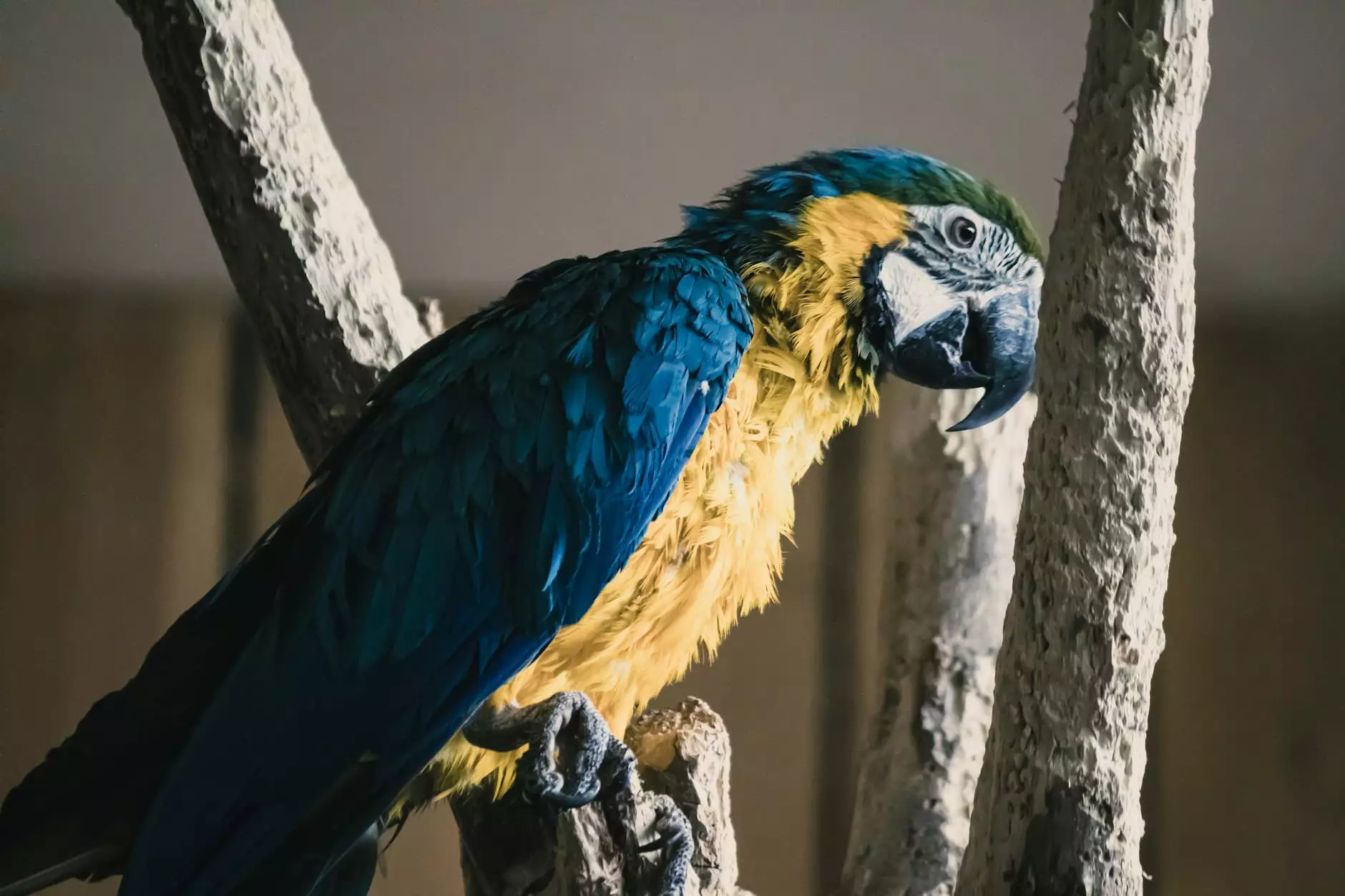Macaws as Pets: The Ultimate Guide for Enthusiasts

When it comes to owning a pet, few creatures captivate the hearts of animal lovers quite like the macaw. Known for their striking colors and engaging personalities, macaws as pets have become increasingly popular among bird enthusiasts. This article delves deep into the world of macaws, providing you with essential information that will help you make informed decisions about becoming a macaw owner.
Understanding Macaws
Before we discuss the various aspects of caring for a macaw, it’s crucial to understand these magnificent birds. Macaws belong to the family Psittacidae and are native to Central and South America. They are known for their vibrant plumage and large size, with some species boasting wingspans of up to three feet!
Characteristics of Macaws
- Colors: Macaws are famous for their brilliant colors, which can include shades of blue, green, yellow, and red. These colors can vary significantly between different species.
- Size: Macaws range in size from medium to large, with some species like the Hyacinth Macaw being the largest parrot species in the world.
- Lifespan: Macaws have a long lifespan, often living 30-50 years or more in captivity, making them a long-term commitment.
- Intelligence: Highly intelligent birds, macaws can learn to mimic sounds and words, and they require mental stimulation.
Choosing the Right Macaw for You
When considering macaws as pets, it’s essential to choose a type that fits well with your lifestyle. Some popular species include:
1. Blue and Gold Macaw
This species is known for its stunning blue and yellow feathers and friendly personality. Blue and Gold Macaws are social and typically do well in family settings.
2. Scarlet Macaw
With their vibrant red, yellow, and blue feathers, Scarlet Macaws are breathtaking. They are highly intelligent and require a lot of attention to prevent boredom.
3. Green-Winged Macaw
Recognizable by their green wings and large size, Green-Winged Macaws are known for their playful and affectionate nature.
Preparing Your Home for a Macaw
Before bringing a macaw into your home, you must prepare your living space to ensure it is safe and conducive to a happy bird. Consider the following:
1. Cage Size and Quality
Macaws need a spacious cage that allows for movement and flight. The cage should ideally be at least 4 feet wide by 3 feet deep by 6 feet tall and constructed of durable materials, as these birds are strong and can chew through softer materials.
2. Safe Environment
Ensure your home is free from hazards. Remove any toxic plants, secure loose wires, and be cautious with items that birds can chew on.
3. Toys and Enrichment
Macaws are intelligent and require mental stimulation. Provide a variety of bird-safe toys, such as ladders, foraging toys, and chewable items, to keep them engaged.
Feeding Your Macaw
A well-balanced diet is vital for the health of your macaw. Here are some dietary considerations:
1. Pellets and Seeds
High-quality pellets should make up the majority of your macaw's diet. Supplement these with a mix of seeds, ensuring they are low in fat. Avoid giving too many sunflower seeds as they can contribute to obesity.
2. Fresh Fruits and Vegetables
Offering a variety of fresh fruits and vegetables is essential. Safe options include:
- Apples
- Carrots
- Leafy greens
- Sweet potatoes
3. Nuts and Treats
Macaws love nuts, but these should be given in moderation due to their high-fat content. Consider using unsalted nuts as training treats to reinforce positive behavior.
Understanding Macaw Behavior
As you begin your journey with macaws as pets, understanding their behavior is crucial for developing a strong bond with your feathered companion. Here are some behavioral traits to observe:
1. Social Interaction
Macaws are social creatures that thrive on interaction. They can develop deep bonds with their human companions but may exhibit destructive behavior if neglected or bored.
2. Vocalizations
Macaws are known for their loud calls. Regular vocalization is normal, but it’s essential to teach them when it’s appropriate to be loud, particularly when you live in an apartment or close quarters with neighbors.
3. Body Language
Learn to read your macaw's body language. A happy macaw will have a relaxed stance, and they may preen themselves. Signs of distress can include feather plucking or excessive screaming.
Training Your Macaw
Training is a fundamental part of the ownership experience. It not only helps with behavior management but also strengthens your bond. Here’s how to effectively train your macaw:
1. Positive Reinforcement
Utilizing positive reinforcement is the most effective method for training. Reward your macaw with treats, praise, and affection when they exhibit desired behaviors.
2. Basic Commands
Teach your macaw basic commands like "step up," "come," and "down". These commands are essential for their safety and can help you manage their behavior.
3. Socialization
Expose your macaw to various environments and people. This practice will help your bird become more adaptable and less fearful of new situations.
Health Care for Your Macaw
Like all pets, macaws require regular health care. Here’s what you need to know:
1. Routine Check-Ups
Annual visits to an avian vet are crucial for the health of your macaw. Regular check-ups ensure preventive care and monitor for common diseases.
2. Signs of Illness
Familiarize yourself with signs that indicate your macaw may be ill, such as lethargy, changes in appetite, or unusual droppings. Early detection is key for effective treatment.
3. Grooming
Regular grooming is necessary for your macaw’s well-being. This includes nail trimming, beak care, and feather maintenance. Consult your vet or a professional groomer for best practices.
Macaws and Family Life
Integrating a macaw into your family life can be a rewarding experience, but it requires planning:
1. Bonding with Family Members
Encourage bonding by allowing family members to interact with the macaw. However, supervise interactions, especially with young children, to ensure safety for both parties.
2. Establishing a Routine
Macaws thrive on routine. Establish a daily schedule for feeding, playtime, and sleep to help your macaw feel secure.
3. Inclusion in Family Activities
Involve your macaw in family activities to enhance socialization. Outings in secure carriers, playtime in a safe environment, and even training sessions can be fun for everyone.
Conclusion: The Joy of Owning a Macaw
Owning a macaw as a pet can bring immense joy and companionship. By choosing the right species, preparing your home, providing a balanced diet, understanding their behavior, and committing to their ongoing care and training, you can ensure a fulfilling relationship with your new feathered friend. Remember that every macaw is unique, and through dedication and love, you can build an amazing bond that lasts a lifetime.
For more information and resources on macaws as pets, visit rareexoticbirds.com.au, where you will find expert advice and connect with reputable breeders to help you find the perfect macaw for your life.









